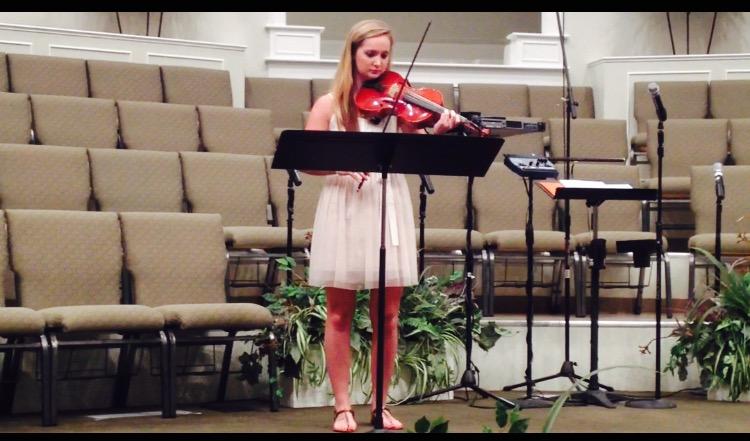Music brings people together, and for one UA student, it has defined some of the most important moments in her life.
“Music always has a way of staying with a person,” said Morgan Hendon, a senior majoring in Communicative Disorders. “Whether you play music or not, music connects people on a level.”
Hendon, a classically trained musician, began playing the violin at age 4, and then took up playing the viola at age 15.
“When people ask me what ‘classically trained’ means, I say that it describes the type of rigor I went through growing up,” Hendon said. “I really never missed a practice with my private teacher, and I learned how to read and write music in both violin and viola.”
Since then, she has kept music a big part of her life, stopping at Carnegie Hall along the way.
“[When I performed at Carnegie Hall] was one of the three times I have seen my dad cry,” Hendon said.
Hendon played at Carnegie Hall with her orchestra, The Etowah Youth Symphony Orchestra, when she was in high school. She described her experience playing at the musical mecca as being both terrifying and rewarding.
“I can only describe Carnegie Hall as massive,” Hendon said. “I was scared I would screw up and basically have my entire music career ruined. But right before we started, we all took a sigh in and just began to play. We had a job to do.”
The orchestra accompanied Mark Wood, former member of the Trans-Siberian Orchestra and inventor of the electric violin, and performed a song written especially for the occasion.
“[Wood] is an incredible musician and an extremely humble man,” Hendon said. He truly just wants to spread a message of love through music.”
The orchestra helped to spread that message, and Hendon gained an experience she would never forget.
“It was electric,” Hendon said. “In that moment I felt as though my life had meaning, that I truly meant something in this world.”
Hendon went on to become principal chair in her orchestra, with whom she played for seven years. Hendon described the orchestra community as a diverse one in her typically rural hometown.
“I grew up in a rural community that wasn’t really open to people who were ‘different,’” Hendon said. “The [orchestra] community gave me a family that was full of people who came from different backgrounds and cultures to give me a better understanding of what it means to be ‘different’.”
These days, Hendon tends to keep her music skills on the quiet side.
“A lot of people have never heard me play,” Hendon said. “It’s a private thing to me. Most people are surprised because they never knew that side of me. It’s just not something I talk about that much.”
Although it has been years since Hendon played with her orchestra at home, she still cherishes what music brings to her life.
“I love music, and it’s a way of life I really believe in,” Hendon said. “We all relate to one song or another. It’s a way to connect.”









